If you’re looking for a personal injury lawyer, contact Tolbert Beadle for more information.
Elder abuse and neglect are, sadly, commonplace. Many elderly adults are abused in their own homes, in relatives’ homes, and even in facilities responsible for their care. There are many different kinds of elder abuse, and it’s important to recognize the signs that abuse or neglect are happening. Let’s take a look at the types of abuse and their implications from the perspective of a personal injury lawyer.
Abuse of elders takes many different forms. Some involve intimidation or threats against the elderly; some involve neglect, and others involve financial fraud or manipulation. The most common methods of elder neglect and abuse are defined below.
Physical abuse. Physical elder abuse is the intentional use of physical force against an elderly person that results in physical pain, injury, or impairment. Hitting and shoving are the most frequent methods of physical abuse, but this can also include improper use of restraints and incorrect administration of drugs. Look for unexplained bruises or abrasions if you suspect physical elder abuse, and contact a personal injury lawyer immediately.
Emotional abuse. Emotional or psychological abuse includes speaking to or treating elderly persons in ways that cause emotional pain or distress, such as:
-
- Intimidation
- Shouting or threatening
- Humiliation and ridicule
- Scapegoating or gaslighting (attempting to create intentional confusion about events or abuse)
- Ignoring the elderly person
- Isolating an elder from friends or activities
- Terrorizing or menacing the elderly person
Victims of emotional elder abuse usually become withdrawn, quiet, and depressed. Watch for drastic shifts in your loved one’s behavior, and contact a personal injury lawyer if you have reason to believe he or she is the victim of emotional abuse at the hands of a caregiver.
Sexual abuse. Sexual elder abuse consists of sexual contact with an elderly person without the elder’s consent. This can include physical sex acts. It can also involve activities such as showing an elderly person pornographic material, forcing the person to watch sex acts, or forcing the elder to undress. These are all considered sexual elder abuse. Similar to emotional abuse, elders may become withdrawn or distant if they are the victims of sexual abuse. A personal injury lawyer may need to rely on information from the elder’s roommate or caregivers to determine whether sexual abuse is taking place.
Elder neglect. Neglect, or failure to fulfill a caretaking obligation, constitutes more than half of all reported cases of elder abuse. Neglect is a bit different from abuse in that it can be intentional or unintentional based on factors such as ignorance or denial of the level of care an elderly patient requires. Often, family members of the elderly can discover neglect through conversations with their loved ones. Make note of any times your loved one mentions that they’ve missed medications, been denied bathing or movement, or have not had bed pads or diapers changed for an extreme amount of time. Elders may not wish to “cause trouble” by reporting these incidents, especially if they seem unintentional, but a personal injury lawyer can help seek compensation for harm caused by neglect.
Financial exploitation. Financial abuse involves unauthorized use of an elderly person’s funds or property, either by a caregiver or con artist. An unscrupulous caregiver might:
-
- Misuse an elder’s personal checks, credit cards, or accounts
- Steal cash, income checks, or household goods
- Forge the elder’s signature
- Engage in identity theft
Usually, the elderly person’s family or power of attorney will discover financial exploitation while reviewing accounts and balances. Personal injury lawyers can help to recover lost funds due to financial abuse.
Medical fraud. Carried out by unethical doctors, nurses, hospital personnel, and other professional care providers, examples of healthcare fraud and abuse regarding elders include:
-
- Charging patients for healthcare and procedures they didn’t receive
- Overcharging or double-billing for medical care or services
- Receiving kickbacks or other incentives for prescribing certain drugs
- Over-medicating or under-medicating patients
- Recommending and charging for fraudulent remedies for illnesses or other medical conditions
- Medicaid fraud
Medical fraud can be difficult to detect; most people assume that medical professionals know what they’re doing and abide by ethical standards. Always ask questions to understand the nature and necessity of medical procedures to verify that your loved one has received treatment they’ve been charged for.
Find a Personal Injury Lawyer at Tolbert Beadle
Elder abuse is an ugly reality in many families, but personal injury lawyers can help bring abusers to justice. Contact Tolbert Beadle for more information or for representation.





